Robert D Davis
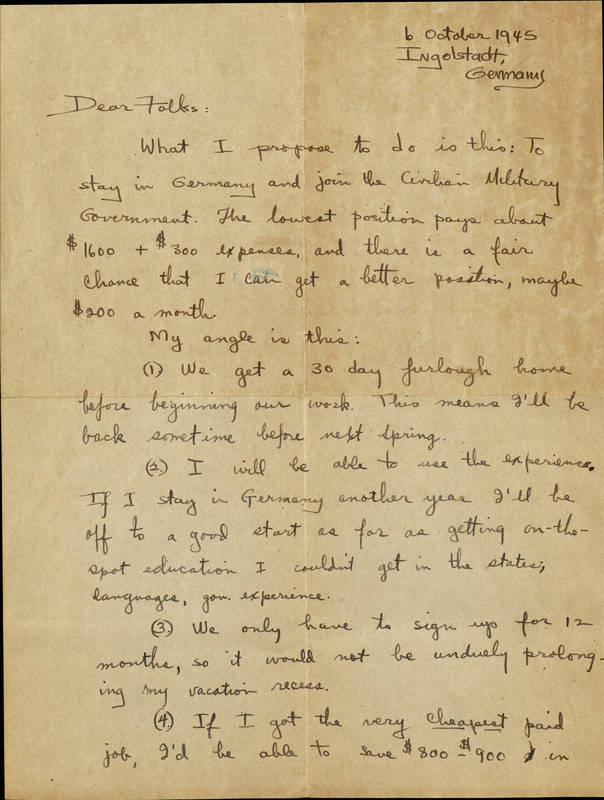
Letter written by Robert Davis home on October 6th, 1945
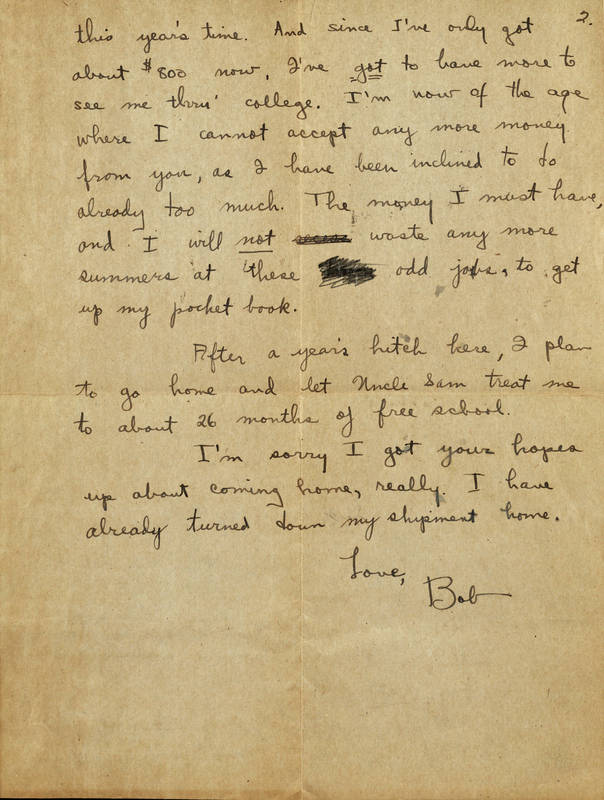
Letter written by Robert Davis home on October 6th, 1945.
This letter written by Robert D Davis, a rifleman and interpreter during World War II who would end his career in Wooster, Ohio, depicts his post war plans. Davis explains that he plans on staying in Germany following the end of the War and when American troops are no longer necessary in Germany. Davis gives multiple reasons for this, especially monetary and economic reasons, an issue that would be prominent in the minds of many following World War II because the United States was just pulling itself back from The Great Depression in the 1930s when they went into World War II. Another reason for Davis to write home about his post-war plans and why staying in Germany would make a lot of sense to him because was only about twenty years old when the war started. The skills that he currently has will mostly relate to war and what he has done during war. Davis wants to be able to utilize those skills that World War II built for him, as other men who served will want to use their military skills as well.
Use Ohio Social Studies Standard 22 (The United States mobilization of its economic and military resources during World War II brought significant changes to American society) and 29 (The postwar economic boom, greatly affected by advances in science, produced epic changes in American life) for integration into the classroom.
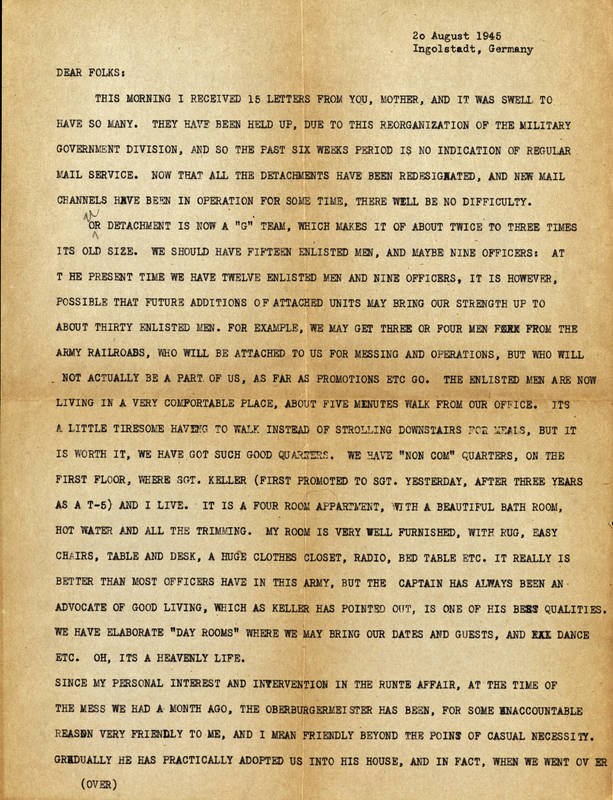
Letter written by Robert Davis on August 20th, 1945.
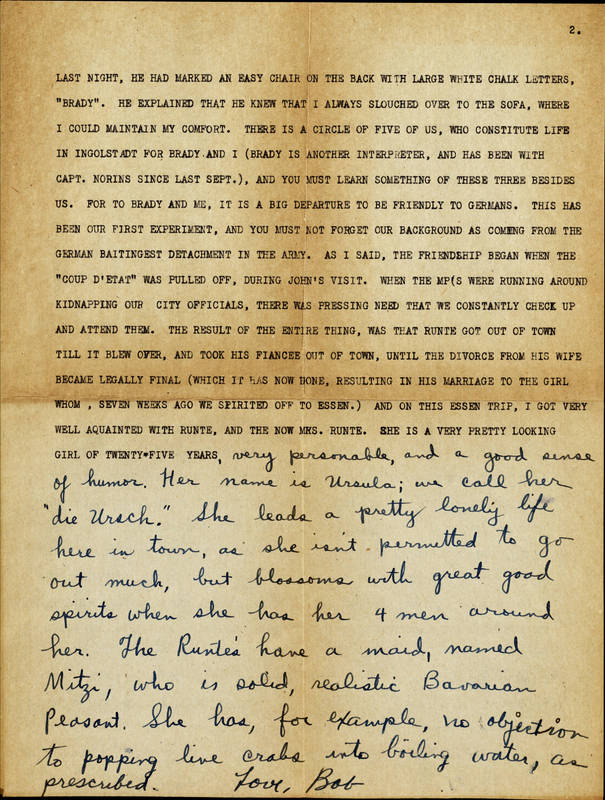
Letter written by Robert Davis on August 20th, 1945.
This letter written by Robert D Davis, a rifleman and interpreter during World War II who would end his career in Wooster, Ohio, discusses the some of the conditions that Davis is living in while he is overseas during World War II. Davis discusses that him and the rest of his unit are willing to live further away and have to walk further to get wherever they need to go in exchange for a much nicer place to live. In addition, Davis discusses the comradery that he and the other men in the unit have amongst them. He says that his fellow soldiers know that he should be sitting a certain way on the sofa to be comfortable. The comradery that soldiers have amongst each other is one of the things that got many soldiers through the war itself, but also the integration back into society following the war. The soldiers share an experience that others cannot relate to, making it difficult following the war when soldiers had to integrate back in to civilian life.
Use Ohio Social Studies for American History 22 (The United States mobilization of its economic and military resources during World War II brought significant changes to American society) and 4 (Historians analyze cause, effect, sequence and correlation in historical events, including multiple causation and long- and short-term causal relations) for integration into the classroom.
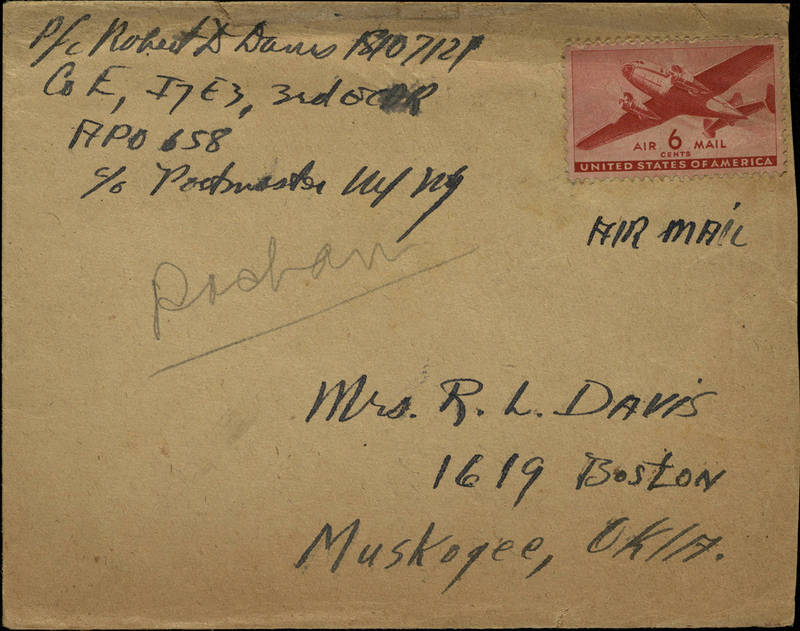
Letter written by Robert Davis home on June 11th, 1945.
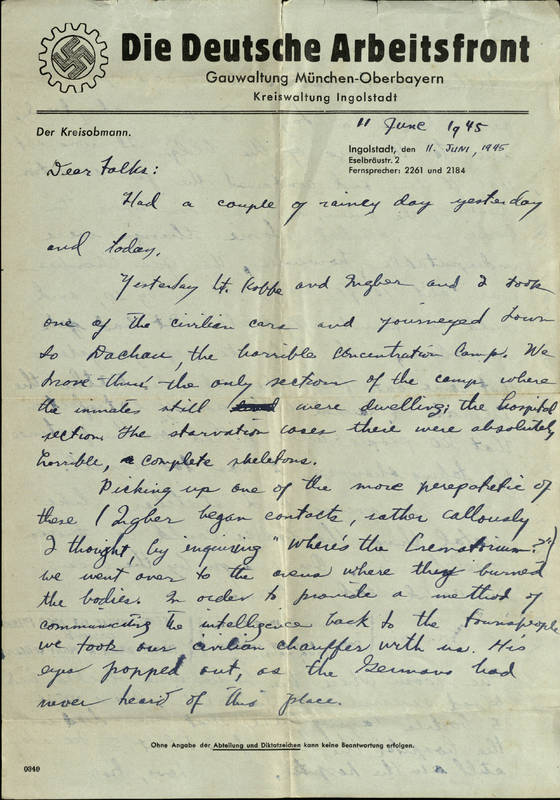
Letter written by Robert Davis home on June 11th, 1945.
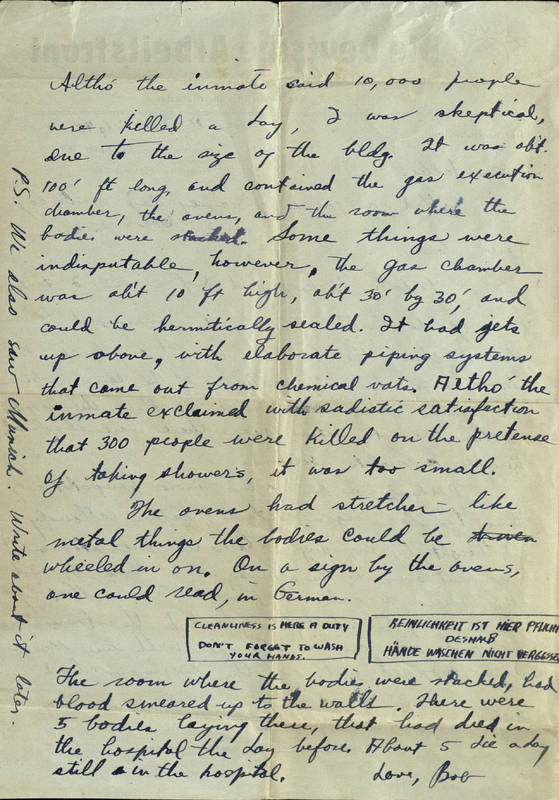
Letter written by Robert Davis home on June 11th, 1945.
This letter written by Robert D Davis, a rifleman and interpreter during World War II who would end his career in Wooster, Ohio depicts what Davis saw as he went to one of the concentration camps shortly following its liberation. Disturbed by the way that the Germans forced those imprisoned at these camps to live, Davis discusses that there were still some living in the horrifying chambers because they had nowhere else to go. He discusses the sight of burned bodies, the crematorium, and the shock he felt as saw how many people were shoved into the small building on the pretense of showering.
The atrocities committed by Nazi’s during the Holocaust shocked both Soviet and American soldiers as they came upon the concentration and death camps in late 1944 and 1945. As SS guards attempted to cover up what was happening in the camps by burning and burying evidence of starving bodies, American and Soviet soldiers who liberated these camps were horrified to see multiple of the world’s largest crematoriums and thousands of prisoners, starving to the point of near death. Davis’s accounts of what he saw in the Dachau death camp were not unlike any of his fellow soldiers.
Use Ohio Social Studies Standard for Modern World History 16 (Oppression and discrimination resulted in the Armenian Genocide during World War I and the Holocaust, the state-sponsored mass murder of Jews and other groups, during World War II) for integration into the classroom
Use Ohio Social Studies Standard for American History 22 (The United States mobilization of its economic and military resources during World War II brought significant changes to American society) for integration into the classroom.
